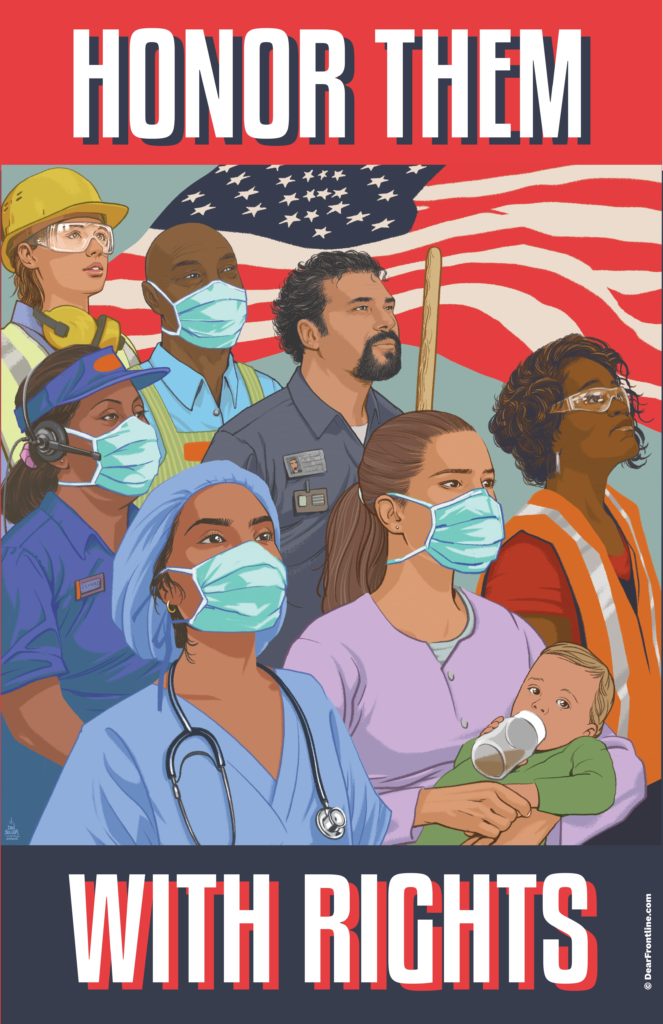07
Sep
Commentary: Let’s Do More Than Thank Workers on This Labor Day; Let’s Commit to Abolishing Pesticide Laws that Institutionalize Disproportionate Risk
 (Beyond Pesticides, September 7, 2020) On Labor Day during this coronavirus pandemic, it is especially appropriate that we thank all essential workers—but thanks are not enough. We must redouble our efforts to eliminate the racial and economic inequities in our society that contribute to disproportionate risk to the health and well-being of workers, especially people of color. As the commentary in New York Magazine by Sarah Jones states, “[T]okens of appreciation are just that: tokens, which signal nothing deeper than gratitude. That doesn’t pay anyone’s rent.” And, all our gratitude does not protect anyone’s health. Nobody should have to risk their health for a job.
(Beyond Pesticides, September 7, 2020) On Labor Day during this coronavirus pandemic, it is especially appropriate that we thank all essential workers—but thanks are not enough. We must redouble our efforts to eliminate the racial and economic inequities in our society that contribute to disproportionate risk to the health and well-being of workers, especially people of color. As the commentary in New York Magazine by Sarah Jones states, “[T]okens of appreciation are just that: tokens, which signal nothing deeper than gratitude. That doesn’t pay anyone’s rent.” And, all our gratitude does not protect anyone’s health. Nobody should have to risk their health for a job.
As we as a nation recognize that systemic change is needed to fight racial and economic injustice, we are faced with questions that go to the core of our society—the distribution of wealth, a livable wage, investment in and access to education and health care, and an environment that sustains life.
It could be said that an environmental organization, like Beyond Pesticides, that works on environmental, health, and agriculture and land management issues should “stay in its lane” and not delve into broader issues that address our social and economic structure. However, the events of the last several months, since the killing of George Floyd, has again highlighted in our nation’s history an elevated awareness of the need to address the underlying causes and effects of racial injustice. In this context, Beyond Pesticides is committed to addressing the conditions that give rise to disproportionate harm and working in broad coalitions to correct them.
Our work to advance systemic change will continue to seek changes in underlying policies that codify disproportionate harm, such as federal pesticide law that is built on a foundation that allows elevated and disproportionate risk to workers who are excluded from EPA’s cumulative risk assessment (under the Food Quality Protection Act, amendments to the Federal Food, Drug and Cosmetic Act and the Federal Insecticide, Fungicide, and Rodenticide Act), which aggregates dietary and non-dietary, but explicitly not occupational, exposure to pesticides, while including a mandate to protect children. With this, the law effectively requires EPA to allow higher rates of harm for workers, particularly farmworkers, landscapers (workers who are disproportionately people of color), and others occupationally exposed to pesticides. The coronavirus pandemic has brought disproportionate risk into sharp focus, with the threat of contracting the virus highly elevated among essential Black and brown workers. At the same time, pesticide exposure—associated with adverse respiratory and neurotoxic effects—exacerbates the risk of becoming sick from Covid-19.
With this understanding, we must rethink our approach to pesticide reform, including a legislative proposal before Congress introduced earlier this year, that, while well-intentioned, reaffirms institutional biases that codify environmental racism. The time for systemic change is now.
—Jay Feldman, executive director of Beyond Pesticides.











Congratulations for the Excellent Article, not forget conditions of mainly latino farmworkers in the USA
September 9th, 2020 at 1:37 pmSaludos desde Mexico